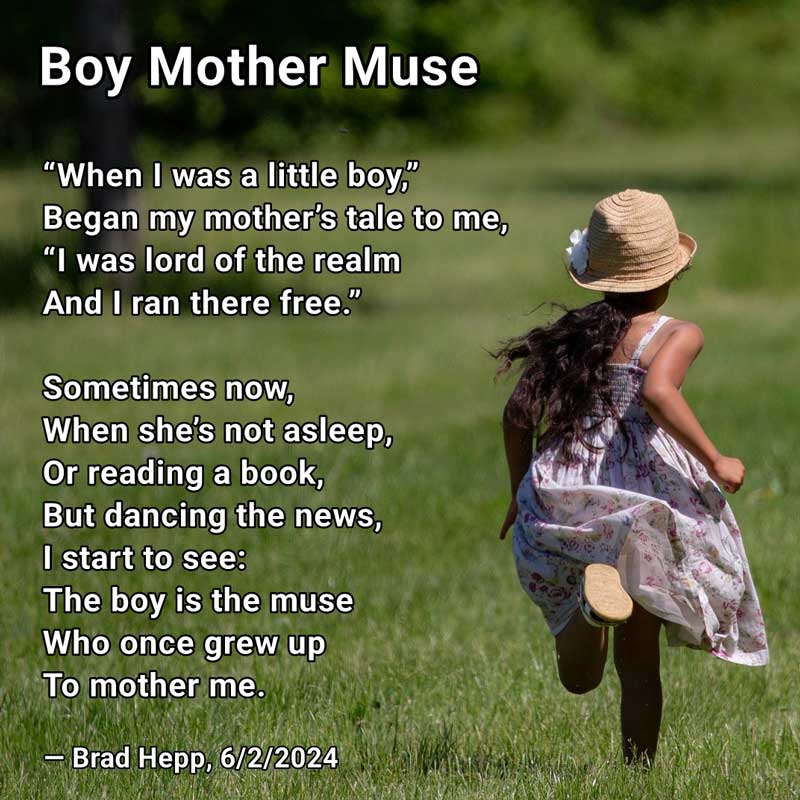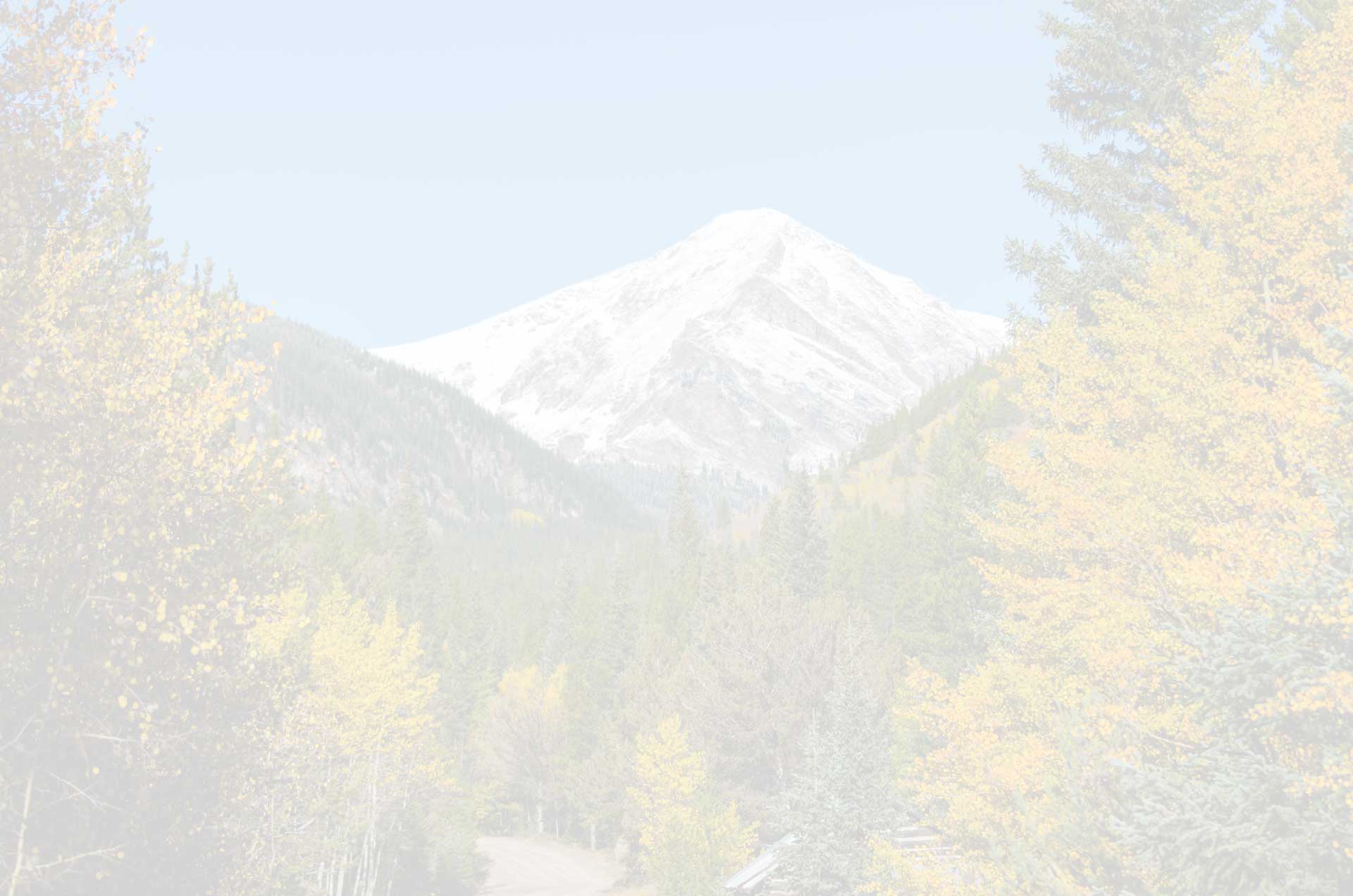(if you are viewing this via email, the website has a recording of this poem and commentary; click the title above)

Commentary
When I first posted this on social media, I could barely contain my excitement:
I can hardly wait to write this up and post it on my blog. I haven’t fully figured out my own poem(!), but it has something to do with gratitude for having been cradled in metaphor. It rocks me still, many years after Mother’s passing.
Like the title, the poem is admittedly confusing. I appear to be talking about three entities: a boy, my mother, and my muse. Let me try to sort it out….
“MUSE“
When I set out to write this poem, I was simply thinking about how to explain those dry times when there’s no inspiration for poetry. Basically, my “muse” (my inspiration) is recharging, often by reading and resting. I think my reader can see that in the poem. And of course it is actually I who am recharging, not some external, mythical influence.
“MOTHER“
For some reason (Freud would have theories), my thinking shifted from an impersonal inspiration—my “muse”—to the most personal inspiration of all: my mother.
Once my focus shifted from an imaginary, impersonal “muse” to my mother, the first stanza came to me full-formed and finished, with one exception…. Once I had found a suitable background photograph, I substituted “ran” for what I had there originally: “wandered.” By the way, I do actually, literally remember my mother starting a story with these curious words.
“BOY“
That brings me to the most confusing part…. My mother was never a little boy. But in an effort to connect with me in my boyhood, she told me about her early life AS THOUGH she too had once been a little boy. That may have been easy and natural for her, since she was an only child, a self-proclaimed tomboy, and she lived out in the country. In any case, my kind, creative mother employed a giant metaphor to communicate her solidarity with me. As I wrote above, I am grateful for having been cradled in metaphor. Elements of poetry–metaphor, creativity, beauty–surrounded me in my youth.
“DANCING THE NEWS”
The fourth line of the second stanza changed repeatedly. Instead of “the news,” I tried various adverbs to describe how my muse acts when she’s not off recharging. I had her “dancing playfully,” “…energetically,” and “…gracefully.” None of those satisfied me. Finally, I decided that I should bypass all those adverbs and point instead to the reason behind her dancing: “good news.” (By the way, this is a line I’m borrowing from one of my own favorite poems: “Dancing The News.”) Although much of my poetry is complaint, or lament, I think it is all written in the context of hope for eventual resolution and restoration. Ultimately, I am inspired to write poetry by the “Good News” of the Gospel. My mother–more than anyone else–enabled me to see that good news.
(background image by Kev on Pixabay)
